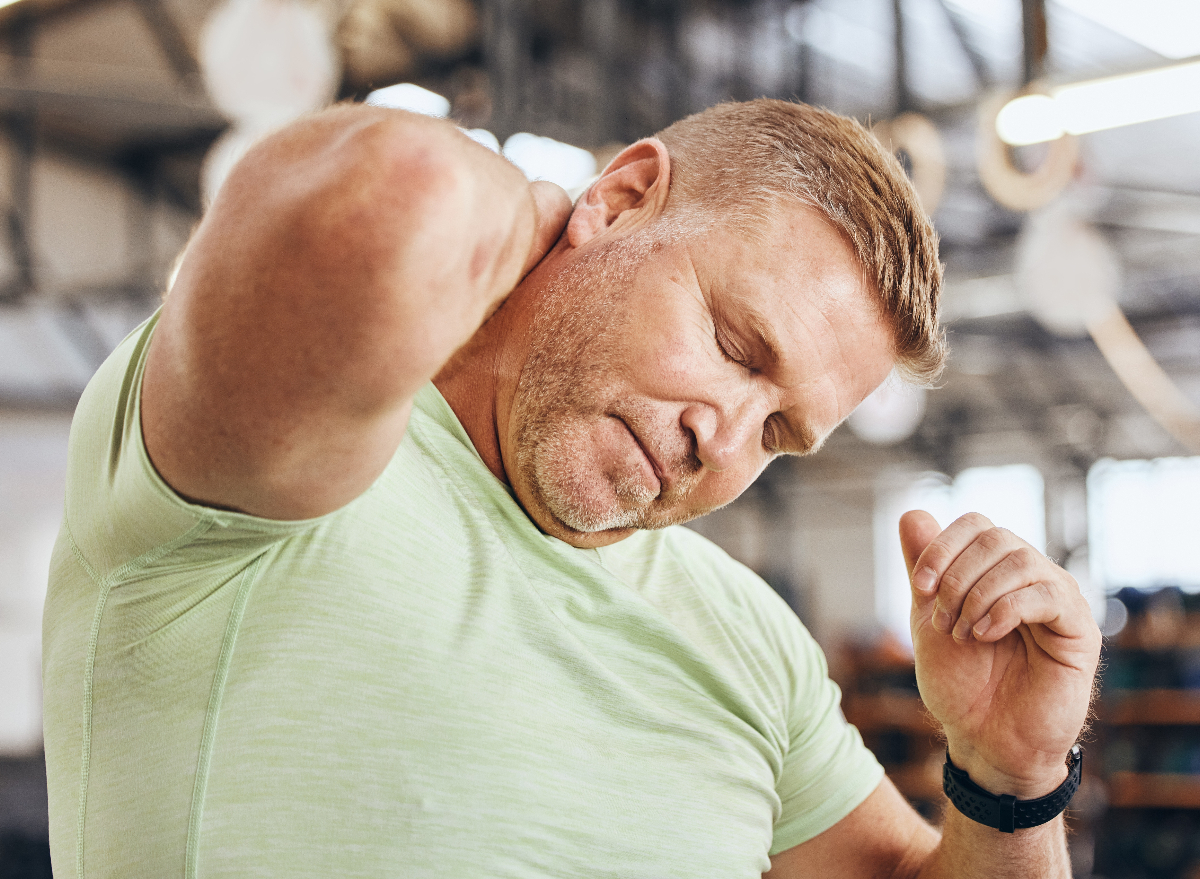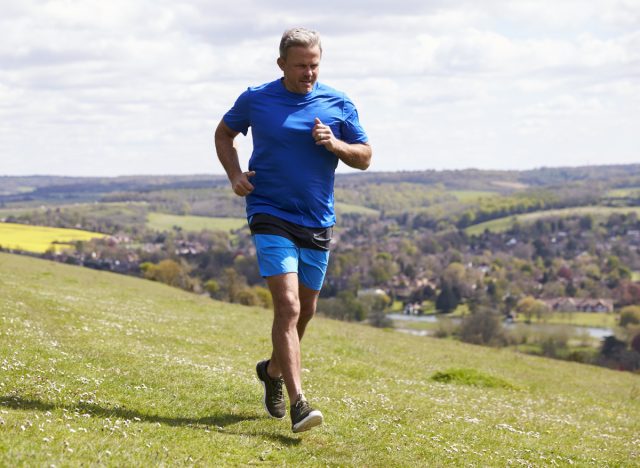The 4 Worst Fitness Habits That Cause Muscle Fatigue as You Age

As you continue to grow older, maintaining and building up your physical fitness is critical. Continuing to lead a healthy, active lifestyle means working out throughout the week and not skipping any sessions. If you're already staying active, kudos to you! But there are also a few common habits that cause muscle fatigue as you age that you may have picked up along your journey. The kicker here is, you might not even know they're the culprits behind your fatigued muscles!
To ensure you're not making any mistakes in your workout routine, we've put together four of the worst fitness habits that cause muscle fatigue as you age. Keep reading to learn about them, and next, don't miss The Best Arm-Strengthening Exercises for Seniors.
You're not incorporating steady-state cardio.

Even though you may be strength training on a regular basis, you can't neglect aerobic exercise. You want to incorporate some form of steady-state cardio into your routine to improve your endurance and prevent your muscles from fatiguing as fast as they currently are.
If you're not already performing cardio, start by adding two to three 30-minute sessions at zone 2 in order to build up your stamina.
You're only performing lower reps in your workouts.
Although you certainly need to lift heavier in order to build and maintain muscle, you should also train in higher rep ranges. If you make it a habit of working in lower reps, you won't improve your muscular endurance. This will carry over to when you do activities that put your muscles under a longer time under tension.
Start incorporating higher reps (10 to 15+) for some of your exercises. Doing so will give your muscle endurance a solid boost and prevent you from fatiguing as quickly.
You're not training your legs.

One of the biggest fitness habits that cause muscle fatigue as you age is focusing on your upper body and skipping out on leg day. Not training your legs is detrimental, considering they make up half of your body. Just running or hiking isn't enough.
As you get older, having a strong lower body becomes more important than ever before. It helps with injury prevention and your overall health. Start incorporating lower-body strength training exercises into your routine pronto. I recommend squats, lunges, and split squats to kick things off.
You're ignoring power and interval training.
Not only do you lose aerobic fitness and muscular endurance as you get older, but unfortunately, you also lose power and anaerobic performance. One thing you can do is to have a workout during the week where you're focusing on doing power and interval training. Start your sessions with a few sets of plyometric exercises, then move on to 10 to 15 minutes of intervals on your favorite piece of cardio equipment.









